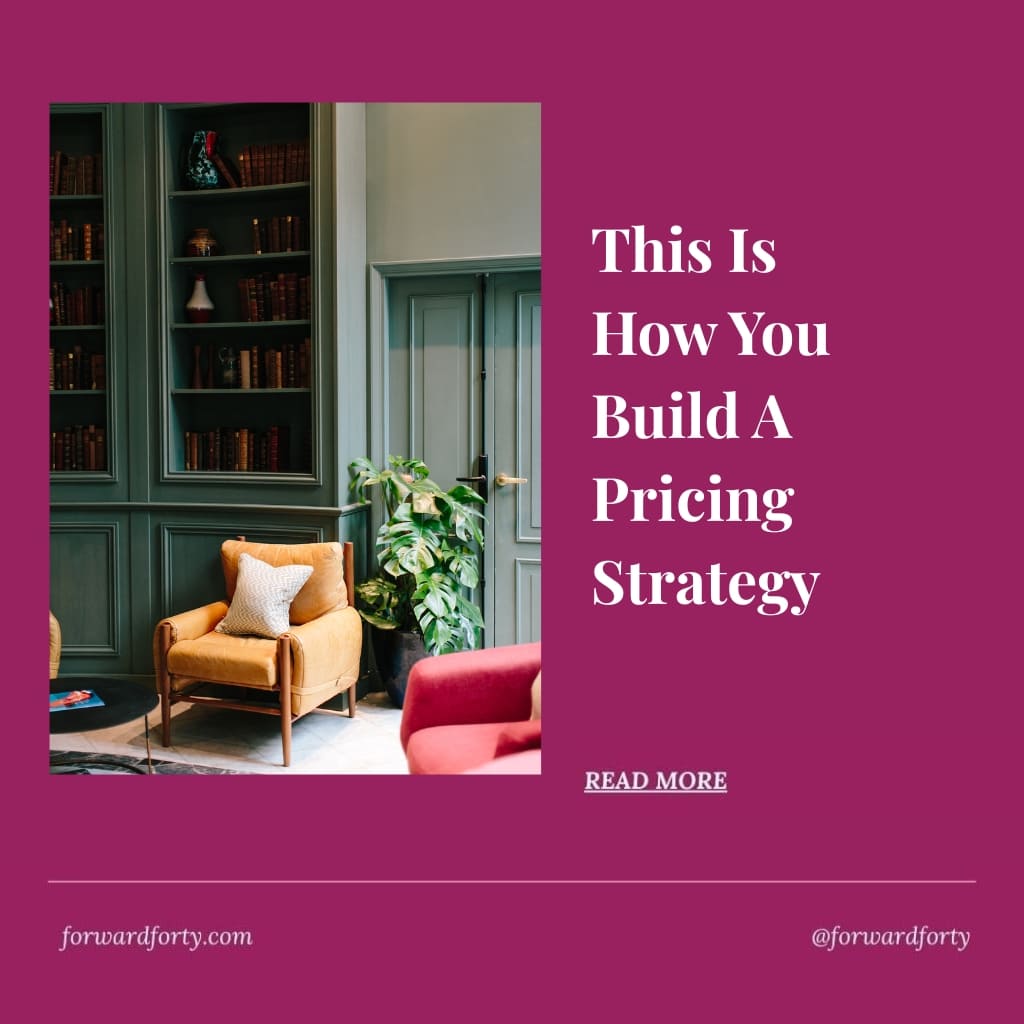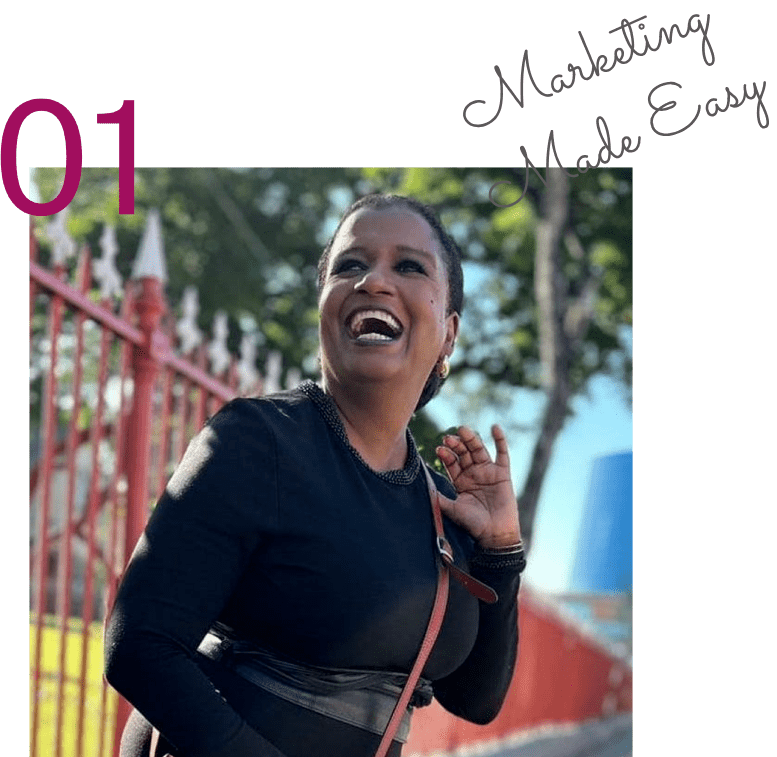This story of how I came to develop pricing strategy goes way back—20 years ago.
Table of Contents
ToggleAnd at the time, the insurance company, CLICO, was at the top of their game at the time the leading provider of services in the Caribbean region.
I was working as a consultant with their corporate communications department, led by a brilliant communicator who gave me full access to the C-Suite.
A great deal of trust had been built by then.
I was hardworking and confident…
…But
I was also just a couple years into my business and constantly nervous about pricing.
Look, I never wanted to lose any business.
Anyway—Rudy Giuliani (yes, the former crime-stopping mayor of NYC, not the shadow of a man and leader he’s become) was coming to town that year to headline the CLICO Leadership Series.
My mission? 🚀🚀🚀
Write three keynote speeches for the leadership team, including 2 VPs and the CEO, who was giving his first major address since being appointed.
When I handed Alicia (my accountant) a $6,000 quote to whip into an invoice, I could hear her gasp.
“Judette,” she said. “I need you to write down everything you’ll be doing to get these speeches into their hands.” 🤬📢
That was my first wake up call to revamp.
Let’s dive into how I first learned to build a pricing strategy, one I still use today.
With This Pricing Strategy I Changed a $6000 quote to a $25,000 quote
The list my accountant asked me for was a revelation.
To get the speeches into the hands of the executives, I needed to several things, some of which I never even thought of costing.
🔎 ➙ Research: Two full weeks of background research.
🗣️ ➙ Interviews: Ten one-on-one interviews with the executives to gather personal stories and refine messaging.
✍🏽 ➙ Drafting: Three rounds of edits per speech before final delivery.
🎤 ➙ Training: Four weeks of delivery coaching—podium presence, pacing, tone, body language, and more.
📃 ➙Support Materials: I’d need to purchase Giuliani’s book, print draft copies,
⏰ ➙Availability: No weekends off. No new major client work during the project window. Full focus. So essentially they were buy my exclusivity.
My accountant asked me straight up:
“Is this really just speechwriting? Or is this… a production?”
It was a production. A full-on, executive-level transformation.
And when we finally submitted the updated invoice—close to five 5️⃣ times my original quote—I was terrified.
Don’t forget: this was over 20 years ago. I had no idea what they’d say.
But Alicia reminded me of something powerful:
“You have to be prepared to lose in order to win.”
And then it happened. The email came in:
“When can we start?”
I screamed that I scrumpt when they accepted that $25,000 quote but let’s fast forward to the aftermath the day of the “production.”
Tears streamed down my face as I sat in the audience. The CEO delivered the speech I had crafted—my words, rehearsed to standing ovation perfection.
Yes, he got one, the entire audience was on their feet.
I’m telling you this story for several reason, so you know
👉🏽 A pricing strategy is a formula.
👉🏽 It’s not a guess.
👉🏽 It’s not a vibe.
👉🏽 It’s not a feeling. (until you understand structure).

Include Both Direct and Indirect Costs
Remember Alicia’s, my accountant’s gasp?
That wasn’t just about the number I quoted—it was about the fact that I hadn’t fully owned what went into the work.
Remember when she looked me dead in the eye and said,
“Write it all down. Every single thing.”
And that was the moment I learned: You can’t price with confidence if you don’t know the costs of your inputs.
So let’s start there. 👏🏼 👏🏼 👏🏼
When you’re thinking about your pricing strategy, yes—of course you’ll eventually consider your industry, customer psychology, the competitive landscape, the value your offer delivers…
But wait 🔴
Before any of that—you need to get real about your inputs.
That’s your first port of call when creating your pricing strategy.
What do your inputs cost?
Material🟢 Labour 🟢 Time 🟢 Indirect Costs
If you’re a creative selling physical products, you know what I mean.
➢ The beeswax, the gold-plated beads, the hand-dyed cloth, the crochet threads that you patiently unravel
➢ The hair, if you’re a hair dresser.
➢ The film and equipment, if you’re a photographer.
➢The tech stack, if you’re an online entrepreneur
➢ Oh and please don’t forget all your indirect costs of producing and delivering the thing you sell-
-your overheads, your marketing, your distribution, your assistant, the gas (if you’re covering long distances in service of the work you’re producing). etc.
All of these costs of good (both direct and indirect) need to get stewed into your pricing strategy or you’ll lose out on your margins.
This is as simple of a pricing strategy as it gets but I can’t begin to tell you how many small biz owners don’t have a clear understanding of the basic costs of whatever it is they’re selling.
And if you don’t start here—you’re just guessing.
So before we move to the juicier parts (like value and margin), I want you to pause and ask yourself:
👉🏽 What do you need—really need—produce your products or service well?
Write it down, all of it.
That’s where your pricing strategy begins.
How To Cost Your Time
As a small business owner you need to become obsessed with tracking your time.
I track my meeting time, my writing time, my build out time, my brainstorm time, my research time, reporting time, creative time, actual doing the work time
When you track every single detail, ever so often you’ll find yourself asking:
Are things actually taking the time as I think they’re taking?
HINT: they’re not. ⏰📢⏰📢
I read somewhere that people often underestimate how long things take—sometimes by two- three times less.
(That “quick client email” can take 1 hour and not the 15 minutes you thought it would.)
So I time myself. I track. I watch the clock. ⏳ ⏰. I’d plot my times down.
For example:
I know it takes me 2 full hour to write a solid sales newsletter—even if I’m using AI to help brainstorm, refine, or shape the copy.
AI tools help, sure.
But the thinking, crafting, original ideation guiding the AI, decision-making? That’s still me.
And it still takes time.
That’s why I tell small biz owners during coaching calls to:
Walk through your entire process—whether it’s client work or building a product—and break it down into 20-minute chunks.
I set a timer.
Every single step. Every deliverable. Every email. Every design round.
Because when you know your time, you know your price.
↑ read that again, consultants.
And


For years, I tracked everything down to the 1/3 hour—especially when I was running my PR agency.
It’s one of the most helpful skills I’ve carried forward into my digital business.
Because listen—
📦 Whether you’re delivering a done-for-you package, or making products to sell, serving as a consultant
If the process takes 50 hours to execute, then it takes 50 hours. ⏰ ⩇⩇:⩇⩇,
And you need to account for that time in your pricing strategy.
Even if you’re the one doing the work yourself or using freelance talent
That’s the cost.
And your time matters just as much as the crochet threads and the gold plated beads.
So be honest with yourself.
Track your time and start pricing your time like the resource it is.
This process is also the best way you can be honest with your client.
Document everything.
From Cost To Value Based Pricing
Now that you have a basic pricing strategy and formula down let’s attach some feelings to the mix.
But first let’s talk about President Trump and his tariffs.One of the biggest upheavals of 2025 got exposed when Trump slapped on tariffs and slammed the world’s trade doors tight.
But China 🇨🇳🇨🇳 ripped those doors open, and basically said:
“That $15,000 luxury bag you’re so proud of? It’s made right here, in China, —for $500.
And we’ll sell it to you for $600. Same factory. Same leather. Same bag.” 🇨🇳
Listen, the TikTok rabbit hole I went into. Same bag. Different price tag.
Why were people paying such a massive price difference?
➕Because they thought the leather was from Florence.
➕Because the stitching felt “artisanal.”
➕ Because the brand’s logo was worth its weight in $15,000 gold.
Prestige. Perception. Positioning is the only story behind charging a premium price.
You get to shape how your potential customers see the value of working with you.
That’s where premium pricing comes in.
Your brand, your results, your customer experience, the extras you do, your communication style, even the intangibles like your joy and transformation you bring …
That’s what lets you charge more, without padding costs.
But let’s be real—you can’t have a premium price strategy, charge for true value with a shaky product or a blurry brand or everyday service.
A client may pay.
But they won’t come back.
And your profit also lies in repeat business and client referrals.
“💰 Premium pricing is never about what you offer.
It’s about what your customers believe they’re getting,” said Seth Godin
And you have to be the one to help shape that belief not just through your offer but though marketing as well.
A Final Note On Your Pricing Strategy
You made it to the end—at least I hope you did?
And if the answer is yes, it means you needed this kind of clarity to structure how much you charge for whatever it is you create.
*** There’s no shame in the not-knowing game.***
Pricing isn’t easy. It’s layered. It can be emotional. And for creatives? It can feel downright uncomfortable.
Especially when you’re taught to see your pricing strategy as as a zero-sum game.
But knowing your base formula and your margins are some of the most powerful tools we have as business owners.
That’s why you need to nail your price strategy first
Today we looked at direct and indirect costs, time, and the psychology of value based pricing.
In the final part of the pricing series we’ll look at
Competing on price.
2️⃣ What determines a customer’s willingness to meet your price point.
3️⃣ How to communicate your pricing…. so HUGE
4️⃣ How to protect your peace while pricing in a recession (I’ve survived and thrived in 3 economic downturns- and failed miserably in one).
Thank you for reading, tell me in the comment section blow, do you have pricing strategy? What are your costs inputs? I loved getting feedback and haering form you. I read all your questions and reflections and respond right back.
Whenever You Need Help….
💻 1. Own/run a small business & want to add an AI Agent but don’t know how to begin? Book an hour with me. I’ll dive into your specifics and then guide you to an easy to implement AI Agent idea. Get on my radar here →
✏️2. At the beginning stages of AI and not yet mastering the output you get? Knowing how to guide your AI model to give you what you want is your ticket to time freedom. Get my AI Prompt Playbook and 20 FREE AI content marketing prompts + a tutorial guide to prompt crafting. Get the AI Prompt Playbook here, just $9.99 →
📧 3. Don’t have enough clients to get your pipeline to cashflow going. The Modern Portfolio Kit is one of the best ways to connect with potential customers who’ve been waiting to find you. Get ASAP done-for-you, customisable frameworks, templates and copy. All you have to do fill in and send out, Snag Modern Portfolio Kit here → It’s like a magnet but make it for new clients. →
🍾 4. Love needs to be shared. 1x week, my small biz love letter aka weekly newsletter goes to over 10,000 email subscribers who call it one of the best ways to get their work week started. Join here →















